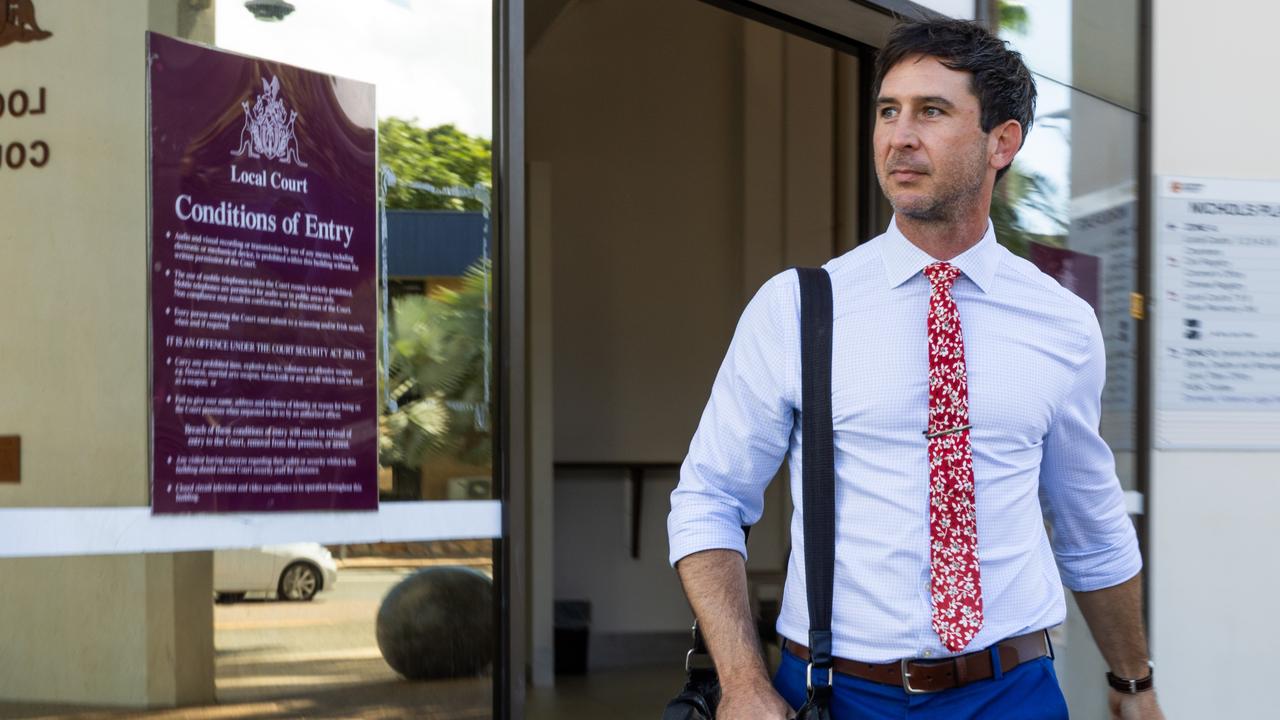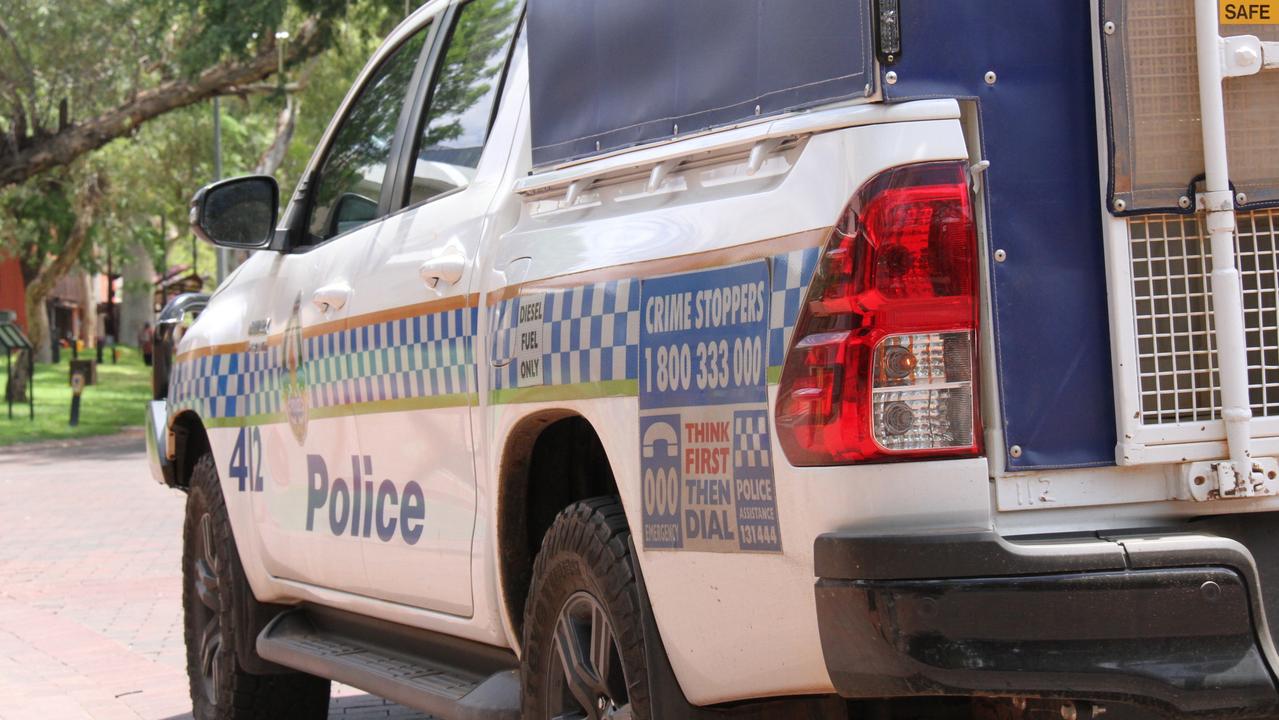DV expert Chay Brown has blunt message for Territorians
An inquest has heard domestic violence perpetrators are not ‘monsters’ but ‘men that we love’ – our brothers, our fathers, our uncles, our friends. Read the powerful testimony.
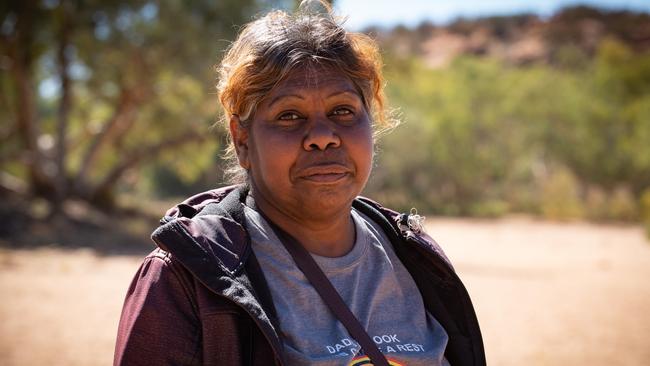
Police & Courts
Don't miss out on the headlines from Police & Courts. Followed categories will be added to My News.
One of the NT’s pre-eminent domestic violence experts has delivered a blunt message to her fellow Territorians who think they don’t know any violent men: “You do – we all do.”
Coroner Elisabeth Armitage is holding an ongoing inquiry into the Territory’s DV crisis, with specialist domestic, family and sexual violence researcher and lifelong Centralian Chay Brown taking the stand in Alice Springs on Friday.
Dr Brown told Ms Armitage “a lot of people would prefer to believe that they don’t know anyone who’s using violence” but she said “the statistics would tell you otherwise”.
“There’s a very unhelpful narrative at times that men who use violence against women and children, they’re monsters, they’re woman bashers,” she said.
“That’s unhelpful, the reality is that they are everyday men, they’re men that we love, they’re our brothers, they’re our fathers, they’re our uncles, our friends.
“That’s what makes it hard sometimes because we do love those people in our lives and it’s hard to stand up.”
But when it came to Aboriginal women, who are disproportionately affected by domestic abuse, Dr Brown said even public acts of violence were often ignored due to “racialised sexism”.
“I couldn’t tell you how many times I’ve responded personally to incidents of violence against an Aboriginal woman in particular in the streets of Alice Springs and elsewhere in the Territory and received absolutely no help from anyone around me,” she said.
“I think it’s this idea that we as a culture – and we see this in our media at times – we as a culture, we do not value the lives of Aboriginal women like we value the lives of other women.”
Counsel assisting the Coroner Peggy Dwyer cited figures showing the Territory government had initially planned to allocate $180m over five years in its 2022-23 budget to address the crisis but the funding was whittled down to just $20m over two years.
In response, Dr Brown said it felt like the government had “wasted our time with those consultations”, saying “those figures are a joke” that did not reflect its public commitment to generational change, with a five-year funding cycle the bare minimum to achieve that.
“They can put that message out there but they’re not backing it up, so their ambition is not extending to their wallet here,” she said.
“We need needs-based funding, we need considerably more funding – and they know that – than what they’re currently putting on the table.”
But Dr Brown said the NT government was “not able to do this on its own” and it was “time for the commonwealth to step up”.
“Other things are always given priority, things are always prioritised above women’s and children’s lives in this country, it seems,” she said.
“And it seems as though the commonwealth would just prefer these women to die in silence than to act.”
The inquiry is set to resume in October.
Police response times blow out by up to 165% across NT
Police response times to priority one call-outs have almost doubled right across the NT in the past four years, a Coronial inquest has heard.
Territory Coroner Elisabeth Armitage is investigating the murder of domestic violence campaigner Kumarn Rubuntja during a long-running series of inquests in Alice Springs this week.
On Friday, counsel assisting the Coroner Peggy Dwyer told the court it was “abundantly clear” that “even on the best case scenario” response times had “significantly blown out since 2018-19”.
Dr Dwyer said the average priority one call-out time in Alice Springs had risen from 23 minutes in 2018-19 to 49.5 minutes, while in Casuarina it had blown out from 20.2 minutes to 53.7 minutes.
“The average response times increased by 96 per cent, or nearly double, during this time, with increases of 90 per cent in Palmerston, 108 per cent in Darwin, 109 per cent in Alice Springs and 165 per cent in Casuarina,” she said.
“And there are significant increases but smaller in Humpty Doo, Katherine and Timber Creek – so extremely concerning.”
Dr Dwyer said the figures were “not a criticism of NT Police” but “a reflection of the enormous demand on them”.
“Your honour would want to know what resourcing is going into reducing these call-outs or addressing the underlying causes or assisting the service providers in a co-response model,” she said.
Dr Dwyer said response times could be even longer for priority two and three call-outs “which, of course, can be extremely important and dangerous situations”.
The inquest continues.
Gillen Club under scrutiny over staff actions before murder
A former manager of the Gillen Club has admitted the venue made no review of its operations after a woman was murdered less than two hours after being kicked out in an attempt to stop her abuser making a scene out the front.
The policies of the popular Alice Springs club came under scrutiny during the inquest into Kumarn Rubuntja’s death on Thursday, with the court hearing she could be heard saying “I feel scared” as she was asked to leave.
No transport was organised for Ms Rubuntja or her killer Malcolm Abbott even though both were highly intoxicated and Abbott was seen asking for his car keys.
Abbott killed Ms Rubuntja by repeatedly hitting her with his car in a horrific domestic violence attack on January 7, 2021.

Timothy Gray was managing the Gillen Club that day, where Ms Rubuntja and Abbott spent about seven hours before she asked for Abbott to be removed because he was being angry and aggressive toward her.
“I noticed that (Abbott) was hanging around the entrance, so I suggested to the guard to also have (Ms Rubuntja) removed as she also appeared intoxicated, and the man hanging around could only cause more problems for staff and other people inside the club,” Mr Gray said in a police statement at the time, which was read in court.
Mr Gray said while in hindsight this case had a “tragic end”, the club policy was to remove anyone disturbing the peace.
“It’s hard in these situations, because of the town we live in we experience these situations quite a bit,” he said.
Security guard Viliame Maivalenisau was also called to give evidence on Thursday, and told the court his impression had been that Abbott was instigating the argument and had been “very drunk and angry”.
The inquest heard that when Mr Maivalenisau told him to leave, Abbott said: “I will get my gun and I’ll shoot you” and “I want to go and get my woman”.
Mr Maivalenisau said it had not been his responsibility to monitor patron wellbeing on the footpath or carpark, or to prevent drunk driving.
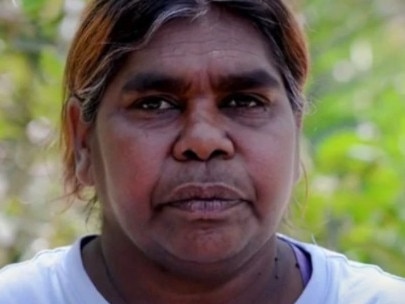
Counsel assisting the coroner Peggy Dwyer told the court that under Alice Springs liquor regulations venues have an obligation to help patrons organise a ride home.
“A lot of money would have been put through Gillen Club coffers on that day from Mr Abbott and Kumarn Rubuntja from drinking alcohol … was it ever suggested the club might shout them a taxi home?” Dr Dwyer asked.
Mr Gray said “that probably would’ve been the best thing to do” but “it’d probably happen a lot in Alice Springs”.
Dr Dwyer also questioned the application of the Territory’s banned drinking register at the club, which was enforced for takeaway liquor but not patrons drinking at the bar.
Both Mr Gray and Mr Maivalenisau said they had received no domestic violence related training in their roles which could have helped staff better identify red flags.
In court Mr Maivalenisau gave testimony contrary to his 2021 police statement that he had not asked Ms Rubuntja to leave and did not remember her saying she felt scared, however evidence from other staff and patrons affirmed the original version of events.
Abbott pleaded guilty to Ms Rubuntja’s murder and was sentenced to life in prison.
August 23: ‘Remember murderer was not always a monster’
The colleagues of a slain domestic violence advocate have told an inquest it is important to remember her murderer’s family also need sympathy and men are not “constantly monsters”.
Maree Corbo worked with Kumarn Rubuntja at the Tangentyere Women’s Family Safety Group, and had “no idea” the 46-year-old grandmother was being abused.
Ms Rubuntja’s partner Malcolm Abbott would go on to kill her in a brutal attack at the Alice Springs Hospital carpark on January 7, 2021.
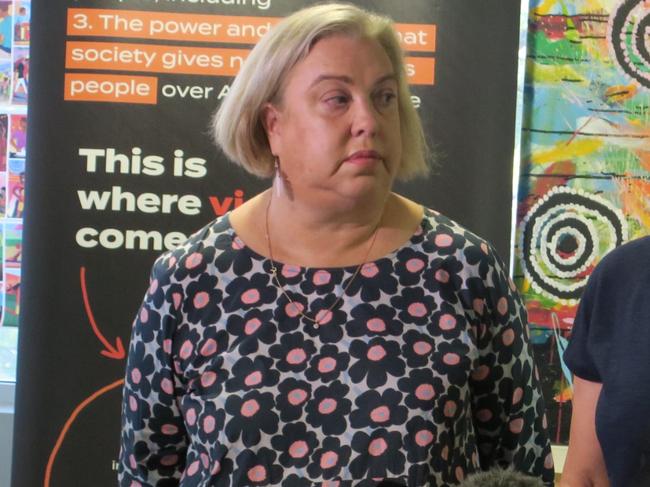
Ms Corbo was this week called as a witness at the inquest into Ms Rubuntja’s death, and told the coroner remembering Abbott’s good characteristics could help explain why their clever, articulate, feisty friend suffered silently through her abuse.
“We don’t think she was ready … when she would have told us, it would have been real because we would have gone into complete action,” Ms Corbo said.
“Often we will get caught up in this idea that men are constantly monsters, that they’re constantly bad … but I think there’s times that he was probably nice to her and kind to her.
“You can still love someone who has done absolutely terrible things. If my son did the worst thing in the world, I would still love my son – I wouldn’t like his behaviour, but I would still love him.
“What I want Abbott’s Camp people to understand is that they are hurting and they are victims too, and I’m so sorry that that’s their experience too.”
Counsel assisting the coroner Peggy Dwyer told the court the inquest’s “whitefella” way of doing things meant a lot of focus was given to the terrible things Abbott had done, but the purpose was not to blame or shame his loved ones, it was to find solutions.
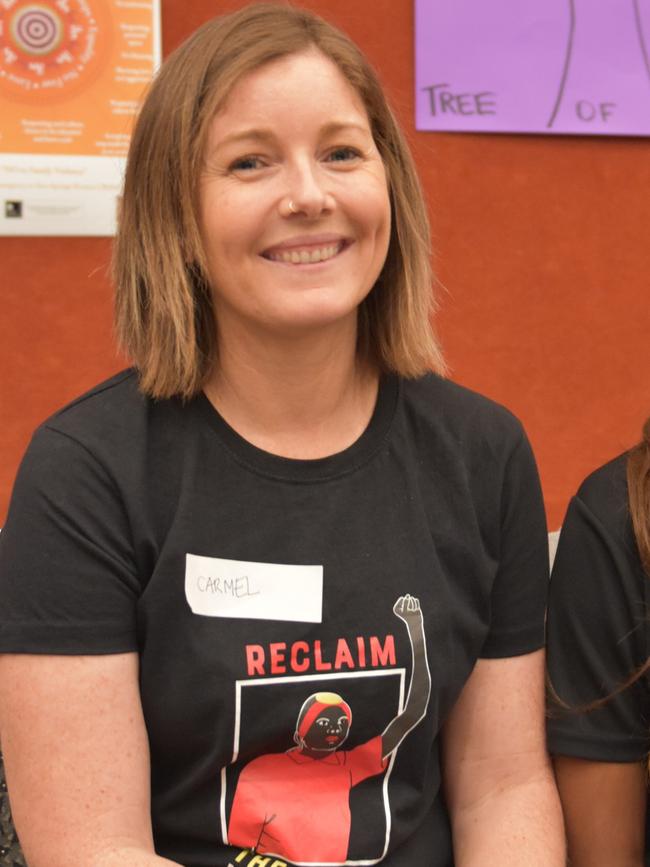
It was a sentiment echoed by Carmel Simpson, the co-co-ordinator of the Tangentyere Women’s Family Safety Group, who was also called as a witness at the inquiry.
“I want to acknowledge the pain and heartache of both the Rubuntja family and the Abbott family,” Ms Simpson said.
“I hope that although this is another whitefella way of going through a process, I hope that this coronial inquest does bring some healing for both families, and some solutions on how we as a society value Aboriginal women.”
Ms Simpson said she hoped everyone could know the “generous, wonderful, strong, witty, funny, courageous, resilient and loving woman” Ms Rubuntja was.
“She was so loved,” she said.
August 22: Inquest reveals shocking warning signs before murder
As Kumarn Rubuntja advocated on the national stage to end domestic violence, her friends and colleagues had no idea the “strong, funny and smart” woman was continuing to suffer through brutal assaults at home.
Ms Rubuntja was killed aged 46 in a horrific, public attack by her partner Malcolm Abbott, who repeatedly ran her over in the carpark of the Alice Springs Hospital on January 7, 2021.
A coronial inquiry into her murder opened this week – the fourth and final inquiry in a landmark investigation into domestic violence against Indigenous women in the Territory.
The coroner heard of Ms Rubuntja’s “extraordinary resilience” in that, despite her trauma, she helped found the Tangentyere Woman’s Family Safety Group, travelling with “fellow warriors” to Canberra in 2018 to lobby federal politicians.
“Since that time, the situation for women in Central and Northern Australia has got worse and the urgency remains,” counsel assisting the coroner Peggy Dwyer said.
“It is unimaginable that soon after that protest in Canberra, Kumarn Rubuntja became involved in a relationship that was characterised by emotional manipulation and abuse and physical violence.”

Police records revealed in the inquest noted 22 domestic violence incidents between Ms Rubuntja and Abbott in their 20 month relationship, from May 2019 until her death.
She was not his first victim.
In 1997 Abbott was convicted of manslaughter and aggravated assault after he stabbed two women, killing one of them.
He was also jailed in 2009 for stabbing his partner three times; in 2014 for hitting his partner; and in 2019 for stabbing his partner and punching her in the lip while holding a sharp piece of metal.
While Abbott was the “most destructive” abuser Ms Rubuntja had been with, he was not the first – the inquest heard a total of 54 incidents of violence from four other men came to police attention since the first report in 1999, when she was 25 years old.
“It is not known whether she had any husband/wife relationship that was not characterised by violence,” Dr Dwyer said.
“Everyone listening in to that, all of our community, all of the women, all of the men, must be deeply saddened by that.”
Expert testimony throughout the inquiry has highlighted how women caught in a cycle of violence can be more likely to be victimised again in other relationships.
The coroner has also heard how inequality is a major driver of domestic violence.
“It is no coincidence that Aboriginal men and women are also more likely to be the victims of trauma, homelessness, disability, poorer schooling, poorer health and lower life expectancy,” Dr Dwyer said.

The inquest heard that on the day of her death on January 7, 2021, Ms Rubuntja had been with then 49-year-old Abbott and a group of extended family members at the Gillen Club in Alice Springs.
She hit a $550 jackpot on the pokies and Abbott became angry when she would not share the winnings with him, pointing at her and saying “I will kill you”.
Soon after, at Ms Rubuntja’s request, a security guard removed Abbott from the premises – the killer making another death threat as he was escorted out.
Ms Rubuntja was also asked to leave the pub because she was intoxicated and as she left could be heard saying “I feel scared”.
At about 9.30pm that night she was sitting by the entrance of the hospital while Abbott loitered in his green Ford Falcon – distinctive for its large West Coast Eagles decal.
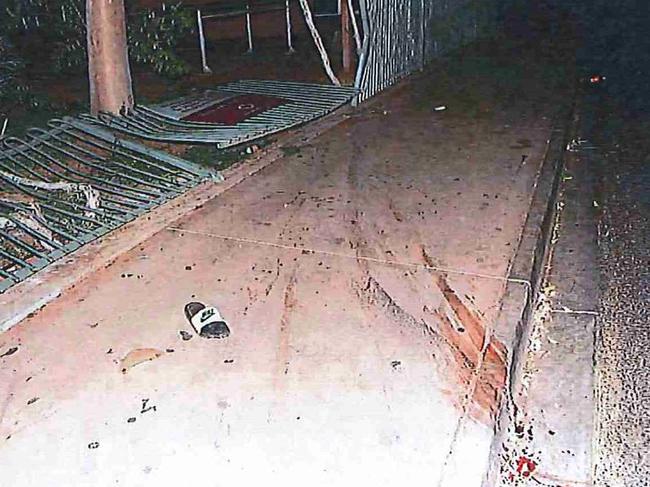
When she refused to go home with him, Abbott drove at Ms Rubuntja, reversing over her twice and dragging her body along the bitumen of the carpark.
Hospital staff rushed to help but she could not be saved and was declared dead at the scene.
Abbott pleaded guilty to her murder and was sentenced to life behind bars, with a non-parole period of 25 years.
August 21: Rolfe asked murderer if DV victim was ‘being annoying’
Former Territory cop Zachary Rolfe asked a domestic violence victim why she called police with “a silly story” months before she was murdered by her partner, and just two days before he shot dead Kumanjayi Walker, an inquest has heard.
Bodycam footage played during a coronial inquest into the death of 46-year-old Kumarn Rubuntja, who was repeatedly run over in front of Alice Springs Hospital in January 2021, shows Mr Rolfe responding to a triple-0 call out she made just over a year earlier.
“Are you Malcolm? Is she being annoying?” Mr Rolfe asks her murderer Malcolm Abbott as he opens the door.

Ms Rubuntja had called police to Anthepe Town Camp where she lived on the outskirts of Alice Springs, reporting that Abbott was going to kill himself on November 7, 2019.
What she did not know was that a permanent mark had been made against her name in police records months earlier, stating she “may make false allegations”.
The alert was made after Ms Rubuntja reported an assault to police but changed her story when officers arrived at the scene – a common occurrence for domestic violence victims, Superintendent Kirsten Engels told the court.
“It’s very complex and there are many reasons why a victim of domestic violence may not say the same thing that she did on a call to police when they arrive,” she said.
Superintendent Engels said NT Police had since removed the option to add such an alert to files for fear it could bias officers’ judgement.
“There is a chance that such an alert might lead somebody to a prejudgement before they arrive at an incident,” she said.

The alert against Ms Rubuntja’s name would have been part of Mr Rolfe’s brief when he attended the November 7 call out, the inquest heard on Monday.
“Why’d you call us,” he asks Ms Rubuntja in the bodycam footage played in the Alice Springs courtroom.
“Now you’re going to lose all your grog just because you called us and made a silly story.
“Why’d you tell us a silly story on the phone?”
When Ms Rubuntja repeats that Abbott “tried to suicide”, Mr Rolfe replies “no he didn’t” and makes a joke about “shower beers” as he searches the home for alcohol.
Two days later Mr Rolfe shot 19-year-old Kumanjayi Walker three times during an arrest in Yuendumu, for which he was acquitted of all charges.
The ex-constable will be forced to give evidence before an inquest into Walker’s death set to take place later this year.
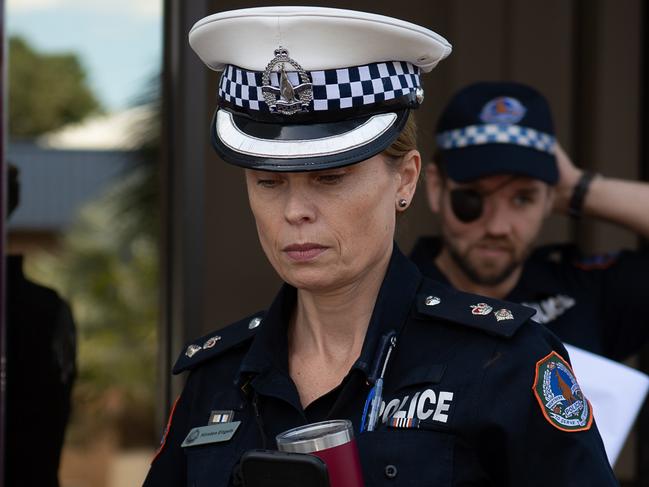
Superintendent Engels said Mr Rolfe’s response to Ms Rubuntja’s call had been “inappropriate” and missed domestic violence red flags.
“There’s no need to lead with something like that … he’s dismissive of why she’s called right from the get go,” she said.
“We can link threats of suicide very closely with a form of control over the victim.”
Superintendent Engels told the court there were significant gaps in domestic violence training for Territory police, and Mr Rolfe would not have received specialised coercive control training before the call out.
She also noted Mr Rolfe was not rude or aggressive and had received incomplete information from the triple-0 dispatcher who failed to mention Ms Rubuntja’s claim that Abbott had hit her.
Mr Rolfe was also one of the attending officers to a triple-0 call Ms Rubuntja made on October 11, 2019, claiming Abbott was trying to stab her.
The court heard police officers found a knife and that Abbott was trying to stab the complainant, however notes from the incident also stated he “showed no signs of aggression”.
Mr Rolfe’s notes, read in court, said Abbott had found a pocketknife on the ground as he and Ms Rubuntja were walking home from the Alice Springs CBD.
“Rubuntja became jealous because she wanted the knife and Abbott would not give the knife to her, Rubuntja then called the police and made up a story,” the records said.
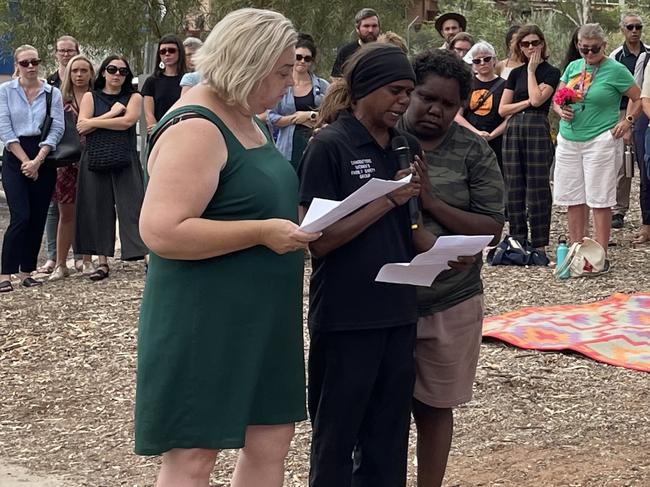
Ms Rubuntja was remembered as a “strong, funny, and smart woman”, a devoted grandmother and a highly respected member of her community, serving as president of Anthepe Town Camp.
She spent the last years of her life dedicated to speaking out against the scourge of domestic violence in Central Australia, organising rallies and travelling to Canberra in 2018 for a sit-in at Parliament House as one of the founding leaders of the Tangentyere Women’s Family Safety Group.
She died on January 7, 2021, with Abbott receiving a life sentence after pleading guilty to her murder.
Ms Rubuntja’s death is the final of four Aboriginal women killed at the hands of their partners in the Territory being examined in a landmark coronial investigation, which continues this week in Alice Springs.



